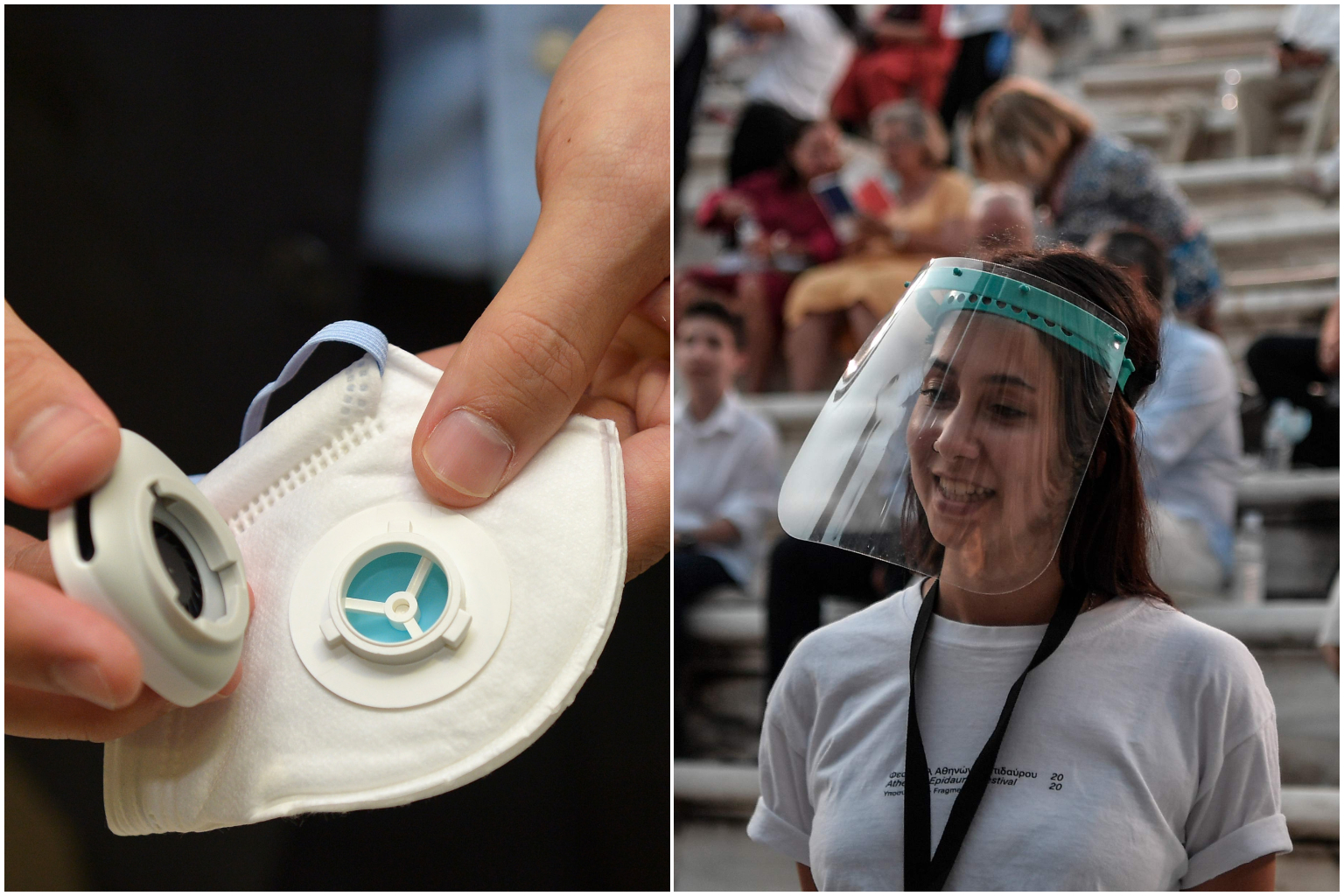Masks with valves and face shields ineffective, allow spread of coronavirus: Study
Sign up now: Get ST's newsletters delivered to your inbox

The face shield initially blocks the movement of droplets but the expelled droplets are spread out over a large area.
PHOTOS: ST FILE, AFP
Follow topic:
WASHINGTON (AFP) - People wearing plastic face shields or masks fitted with a valve can spray invisible droplets over a very wide area when they sneeze or cough, making the devices ineffective at preventing the spread of coronavirus when used on their own, a simulation model shows.
In a report published on Tuesday (Sept 1) in the US journal Physics of Fluids, researchers at Florida Atlantic University used vertical and horizontal laser sheets to track tiny droplets of distilled water and glycerin as they spread from a hollow mannequin head fitted with a plastic face shield or a mask with a breathing valve on it.
The face shield initially blocks the passage of the droplets as they move forwards, but "the expelled droplets can move around the visor with relative ease and spread out over a large area", the researchers said.
As for a mask with a valve fitted to make breathing easier, "a large number of droplets pass through the exhale valve unfiltered, which make it ineffective in stopping the spread of the Covid-19 virus if the person wearing the mask is infected".
The researchers concluded that despite the comfort that both types of protection offer, high-quality cloth or medical masks of plain design are preferential in helping to prevent the spread of the virus.

